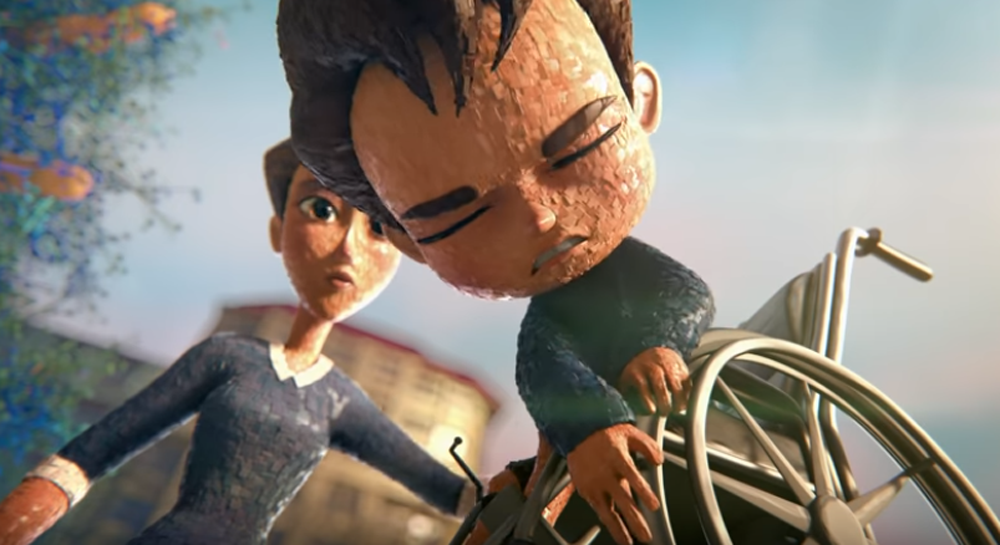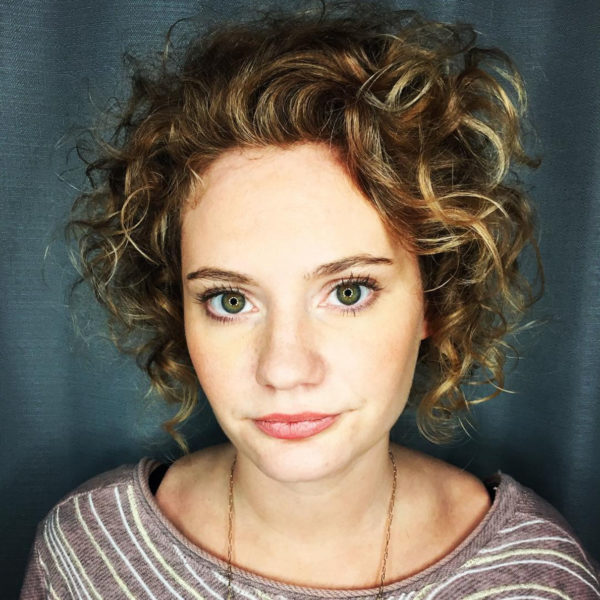Advertisement
This Film Festival Brings Doctors And Scientists Together To Learn About Rare Diseases

Daniel DeFabio and his wife took their son Lucas to see a geneticist a few days before his first Christmas. He had just turned 1, and had regressed: He was no longer able to roll himself over and would only sleep lying flat on one of his parents. No one knew what was causing Lucas’s developmental delays, so they took him to a geneticist who noticed his coarse, brittle hair and said he wanted to test him for copper-related conditions.
When they got home, DeFabio searched the internet and found that his son might have Menkes disease, an often fatal neurodegenerative disorder that affects the body's ability to absorb copper. It’s so rare that many doctors have never heard of it, and most don’t know how to manage the condition, so parents have to become experts in order to advocate for their children.
“It’s sort of a joke in the community: Are you a doctor? No, I’m a rare-disease parent,” says DeFabio, who co-founded DISORDER: The Rare Disease Film Festival, which returns to Cambridge on Sept. 12 during Biotech Week Boston. If Menkes is caught in the first 10 days of life, early interventions can prevent irreversible damage and be lifesaving, but like most others with Menkes, Lucas wasn’t diagnosed until it was too late.
“The first 10 days of his life we were in the NICU with him. That would have been the time to run the test, but no one thought to do it,” DeFabio’s wife Tina said in his 2015 documentary, “Menkes: Finding Help and Hope,” which he made to raise awareness about the disease and encourage early testing.
After making his film, DeFabio co-founded the festival with another rare-disease parent and filmmaker, Bo Bigelow, who made national news when he found a diagnosis for his daughter’s rare condition, USP7 gene mutation, using Reddit. The two wanted to bring more of these stories to the people researching and developing new technologies to detect and treat rare disorders, so they held their first festival in Cambridge two years ago. Now they are back to present a selection of films for Biotech Week Boston before heading to San Francisco in November.
“We were very selective in our targeting of where we would locate the festival,” says DeFabio. “If we can gather into the audience the people who might research and find a cure or treatment, or work in hospitals as OB-GYNs, geneticists, or general practitioners who might make a diagnosis, if those people are in the room, we’ve done something a little more likely to lead to results.”
The selection that will be screened at Biotech Week Boston covers a number of rare diseases in addition to Menkes, including giant axonal neuropathy, USP7 gene mutation, Goldenhar syndrome, PACS1 syndrome, and Angelman syndrome. These conditions are so rare that the film festival will be the first time many of the doctors and researchers in attendance will have seen cases of these diseases and how patients and families are affected. While researchers don’t yet know what causes Goldenhar Syndrome, the others are all Mendelian genetic diseases, meaning that each is caused by a single mutation in the genome.
“The films are powerful because they illustrate the abstract and often dire clinical circumstances that someone with a rare disease is faced with,” says Katie Chase, one of the producers of the festival.
“Lou,” by Mika Matin, shows a day in the life of a young man with Angelman syndrome, a genetic disorder with symptoms including intellectual disability and motor problems. It’s caused by a mutation on the copy of the maternal UBE3A gene. The gene’s paternal copy is silent, but unaffected. New stem cell research has led to promising developments in possible gene-based therapies for people with Angleman syndrome, which could unsilence the paternal gene.
Making its debut at this week’s festival is “Unconditional: Raising a Glass Child with a PACS1 Sibling.” The story follows Beth Poague and her two sons; her youngest has a rare disease, and the oldest, she said she realized was living as a “glass child,” a term that refers to a sibling who might be neglected or given less attention because their brother or sister has more intense needs. In 2016, Poague’s son Finn was the 33rd person to be diagnosed with PACS1, a condition caused by mutations in a gene of the same name that provides instructions for making a protein that helps transport necessary molecules to tissues and cells. It’s usually diagnosed using next-generation sequencing, which has only been developed in the last decade.
This new technology allows researchers to sequence all of the protein coding regions of genes in a genome, known as an exome. Anne O'Donnell-Luria is associate director of the Center for Mendelian Genomics at the Broad Institute of MIT and Harvard, and a clinician who treats children with rare diseases, and she says that exome sequencing has led to the discovery of thousands of diseases, including USP7 gene mutation, the condition afflicting festival co-founder Bo Bigelow’s daughter — there are currently only 25 cases of the mutation identified globally. Exome sequencing is still new, and in many cases insurance won’t cover it, so many rare-disease cases go undetected. O’Donnell-Luria attended the first festival in 2017 and says that it provided an invaluable experience for the medical community in Boston.
“Putting a human face on this is so important,” says O’Donnell-Luria. “A lot of the research materials use photos to try to show what’s going on, but they’re all in a clinical setting. These diseases are so rare that many researchers don’t see the families and how it impacts them.”
DeFabio and Bigelow’s organization, Rare Outreach Coalition, is donating a portion of the festival proceeds to their 7000 Films Initiative, which matches rare disease communities with a filmmaker and the funding to tell their stories.
When Beth Poague, whose youngest son has PACS1, heard about the initiative she wrote in, pitching her story of raising two children in the presence of such a rare condition. Poague says that while a diagnosis didn’t lead to a cure, it helped her family manage the disease and connected them to other PACS1 families.
“It changed everything and it changed nothing,” says Poague. “He was set to go to preschool and that didn’t change. The therapies he got didn’t change. But within a month we were able to go to meet a family with a girl with PACS1 who was three years older than him. He was still nonverbal, but she could talk. We could see what was ahead and support each other and that was everything.”
Today more than 100 PACS1 diagnoses have been made, but experts believe there are at least 10,000 undiagnosed cases in the world. Researchers are drawn to the study of rare diseases because they open a window into human biology by illuminating the functions of specific genes. O’Donnell-Luria says the clinical implications are also significant, because early detection is crucial for better outcomes for those with rare diseases, even when there is no known cure.
“I hope the festival makes people think about going to medical school, or if they go into medical school, to think about specializing in genetics,” says O’Donnell-Luria. “There’s a lot of good work we’re doing here and I hope it’s encouraging people to realize it is a field where you can have a really big impact on these families.”
